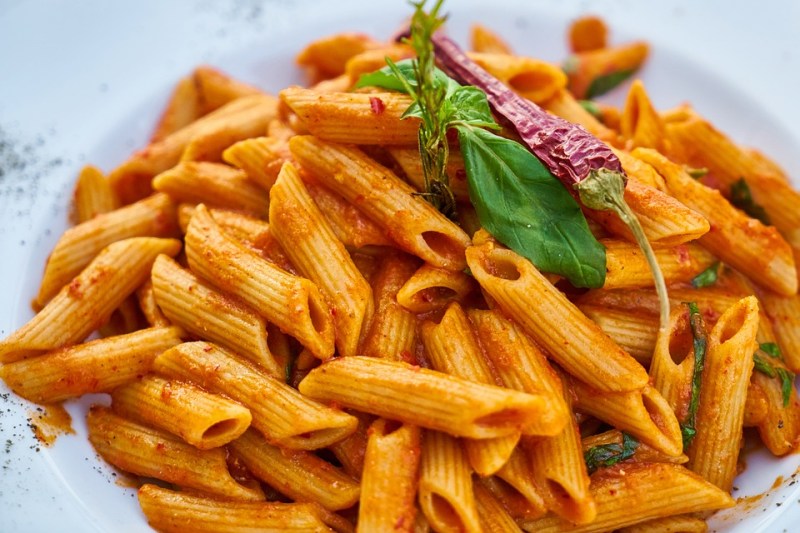I cannot talk about studying in Italy without talking about the food. I didn’t conclude this on my own. According to the program coordinator here, “everybody” who applies mentions wanting to eat pasta, gelato, and pizza when they get to Florence.
I looked over my old application and I didn’t mention anything of the sort. But hey, if you’re planning on studying abroad in Italy, maybe wax eloquent on the beauty of carbs, just in case.
It’s unsurprising how food is such a big draw. College kids are reliably hungry at nearly all times of the day. To get a bunch of exhausted, Netflix-binging Stanford students to dash out of their rooms like they forgot to turn in a take-home final, just offer them free food.
We’ve all experienced the roller-coaster thrill of seeing an email from our dorm chat list — free boba/Ike’s/pizza/Sprinkles/brownies in the lounge! — and sprinting to the proper location alongside dozens of fellow starved brethren, only to find that you’ve already been beaten. It doesn’t matter if you saw that email appear in your inbox. You’ll probably be too late.
My personal theory is that there are students so desperate for food that they follow RAs around, stake out the entrances of dorms and bribe dining establishment employees for notifications of large orders from the Stanford area. Thus they get first dibs on everything, all before an email is even typed to us plebs. Nobody’s verified that for me yet, but I have my suspicions.
Anyhow, Italians have a very different standard for food, and by different, I mean better. All over Florence, soldiers in uniform patrol touristy areas, red berets cocked on their heads and fingers resting on the triggers of their guns. Considering how even “small knives” and “gas pressurized pepper spray” are illegal, this would seem excessive if it weren’t for the threat of terrorist threats.
Then, I learned that those same machine-gun toting men are also called in to raid any restaurant suspected of using GMOs. I did mention they carry machine guns, right?
That isn’t the only evidence of the importance of food in Italian culture. Only tourists walk around while eating or drinking. Meals are a time to sit down, chat with friends, sip a bottle of wine (which is often cheaper than water), savor a dish of pasta and finish it all off with a leisurely cappuccino for dessert. This usually takes well upwards of an hour and a half, and no decent waiter will try to rush you out to make room for others customers.
Meals are not gobbling down a trail bar in between classes. There are very few trash cans in the city, just one for every two or three streets. Yet the sidewalk remains clean, because there are no fast food wrappers and no white and green Starbucks cups to toss on the ground.
“Don’t mix more than one cheese, this is a panino, not a salad,” reads a large note on the menu of the best panini place near the Stanford Center, All’ Antico Vinaio.
“We drink to enjoy drinking,” warned the man who spoke to my class during our first meal together. “Not to get drunk. Do that, and you’ll be in pain during the night, have a headache during the next day. What is the point of that? Foolish. Don’t guzzle your wine down, taste it. ”
Of course, right before he took us on a tour of the wine cellars, a couple students went around to other tables, draining any wine glasses that hadn’t been emptied.
But Italian food is consistently wholesome and delicious. Don’t expect any fancy salads! You’ll be lucky if your host family gives you lettuce with vinegar and salt a couple times a week. People make homemade pasta as a matter of fact. There’s fresh bread served with every meal. The idea of buying fruits and vegetables out of season makes my host dad shake his head in confusion, and mild grief. Every course is as hearty and well-prepared as a main course in the US. And breakfasts might be small, just a couple cookies or an apple, and dinner might be very late in the evening, 7 or 8 p.m., but it’s worth it.
For Italians, preparing and consuming food is a way to appreciate the small things in life with others. It’s a ritual of relaxation and care, and in that regard, I think we Americans have got it wrong. I mean, you can’t say Arrillaga’s chicken is right.
But if you’re anything like yours truly, who knows. Worst case scenario, one day you end up waking up too late to eat breakfast, or lunch. You get dressed and leave the house to find one of the half dozen café’s and restaurants you’ve been recommended to try, only to find everything’s closed for a holiday. So you hop on a bus (which turns out to be the incorrect one, it’s your first time on the bus system) and end up on the other side of the city, starved, with no food to be found anywhere except a Burger King. You give up, go in and order the cheapest item on the menu, and then you open the paper bag and bite into your food, and those four chicken wings turn out to be the third-best wings you’ve ever had in your life.
Yep. Even the fast food is quality over here.
Contact Katiana Uyemura at kuyemura ‘at’ stanford.edu.
